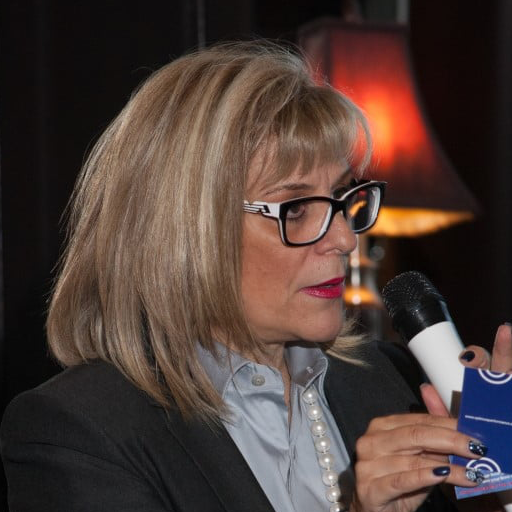 Each weekday morning, Annie Thurn spends an hour telephoning people she’s never met and asks them whether they’d like to sell their homes. Often, she gets lucky when one of the respondents says “yes.”
Each weekday morning, Annie Thurn spends an hour telephoning people she’s never met and asks them whether they’d like to sell their homes. Often, she gets lucky when one of the respondents says “yes.”
Saying “yes” to Annie Thurn wouldn’t be difficult. She’s personable and polite and has honed her telephone skills so that they’re furthering her business as a real estate agent with Re/Max Royal Jordan in Montreal’s West Island.
“When I make a cold call, it’s not to bother anyone. It’s to help people,” says Thorn. “People often ask me about the real estate market and interest rates and the information I give them helps them make decisions.”
A lot of people get cold feet at the thought of making cold calls, which are telephone calls designed to help you make business contacts.
The reason so many cold calls fall upon deaf ears is that they’re clumsily executed, says Marcie Balaban, a motivational business and sales coach and founder of Let’s Get Going, a Dollard des Ormeaux firm that helps companies expand and network.
Balaban teaches business people how to use the phone to their advantage and one of her mantras is that “a cold call should never be cold.”
Baseball pitchers warm up their pitching area before pitching. Runners warm up their muscles before running. Opera singers warm up their voices before performing. And business people need to warm up their minds and souls before telephoning. “Before you make that call, be sure you understand you’re calling a person and not a number,” says Balaban. “Know your product or service well and explain with patience, methodical thinking and bridge-building in mind. I call it a warm cold call.”
Moreover, she adds, every employee at every level of a company should make cold calls, including receptionists.
“The receptionist should be on the phone with the company’s existing clients to wish them a happy day and thank them for their business. She can say something like, “You’ve been a customer of ours for 10 years and I’d like to thank you for that.” This is going to make the company look interesting clients,” she adds.
“The wise careerist makes cold calls almost daily “to generate new business,” says Balaban. “The purpose is to build bridges to what you’re offering or selling. You want to know with certainty that you’ll be able to get in to see the person you’re calling.”
She advises her clients no “to go into a cold call. “Begin by studying the company you’re approaching. “You need to go over in your head your product or service and the need for making the call. Think about your integrity and your feelings about your product or service,” she says.
Balaban, who has built her own business by making cold calls to potential clients, says she begins by drawing a little picture of the bridge she’s trying to build between herself and the people she phones. “You’re on one side of the bridge. The middle of the bridge is the need for your product or service and the other end of the bridge is the person you’re contacting. And remember that you may be calling someone who’s had a bad day or weekend. Your tone should be sincere, quick and to the point. You should sound happy, confident, and upbeat.” Balaban makes a habit of listening to high-energy pop music to set her mood before making her cold calls.
“Find a song that makes your heart and soul dance and play it over and over. It works on your intuition. The rhythm of the music reminds you to get on the phone and off the phone and back on again. In business, your time is money. Buy a miniature clock and monitor the length of every phone call.”
“Remember the letters SWSWSW, which stand for “some will, some won’t, so what, next.”
And she’s adamant that if a contact is unreceptive to a call, you shouldn’t press on.
“Don’t force or coerce your way in,” she said, “Let’s it go and move on the next call.”
If you work in an office with others, close your door and put a “do not disturb” sign on it to prevent interruptions, she said.
Decide upon a time in which to make your calls each day or week and keep them brief. “I set a goal that my calls last a maximum of three minutes,” says Balaban. “I don’t sit and schmooze about kids and stuff. Instead, I make an appointment to see the person.”
When you’ve made the requisite number of call you intended, reward yourself, she says. “Get yourself a latte.”
Annie Thurn says she sets aside an hour every morning to make cold calls. “When I started, I was afraid. I didn’t want people to hang up on me,” she said. But once she decided that that would be the worst that could happen, the process became easier. “I do prepare myself before making the call. If I can, I get a co-worker to role-play the cold call with me, particularly if I’m calling someone whose real estate listing has expired from the Multiple Listing Service. These are the people who are frustrated.”
Balaban says one way to deal with rejection during the cold call is to remember the letters SWSWSW, which stand for “some will, some won’t, so what, next.”
Eschew cell phones when making cold calls, she said “It’s a judgement call. Some businesses do well on cell phones but I don’t think you should make an initial call on a cell phone.”
She also suggests tracking your cold call success on paper.
Thurn reckons cold calls are the least expensive and most effective way of marketing oneself in business. “Once or twice a week, when I ask people if they’re thinking of selling their homes. I get a yes. We make an appointment. I visit the house, measure it and do a market analysis for the potential vendor.”
About 70 per cent of those potential vendors take Thurn on as their real estate agent.
Clearly, she’s warmed up her phone making those cold calls.
Marcie Balaban’s Web site address is www.letsgetgoing-global.com. Her email address is getgoing@ca.inter.net.



0 Comments